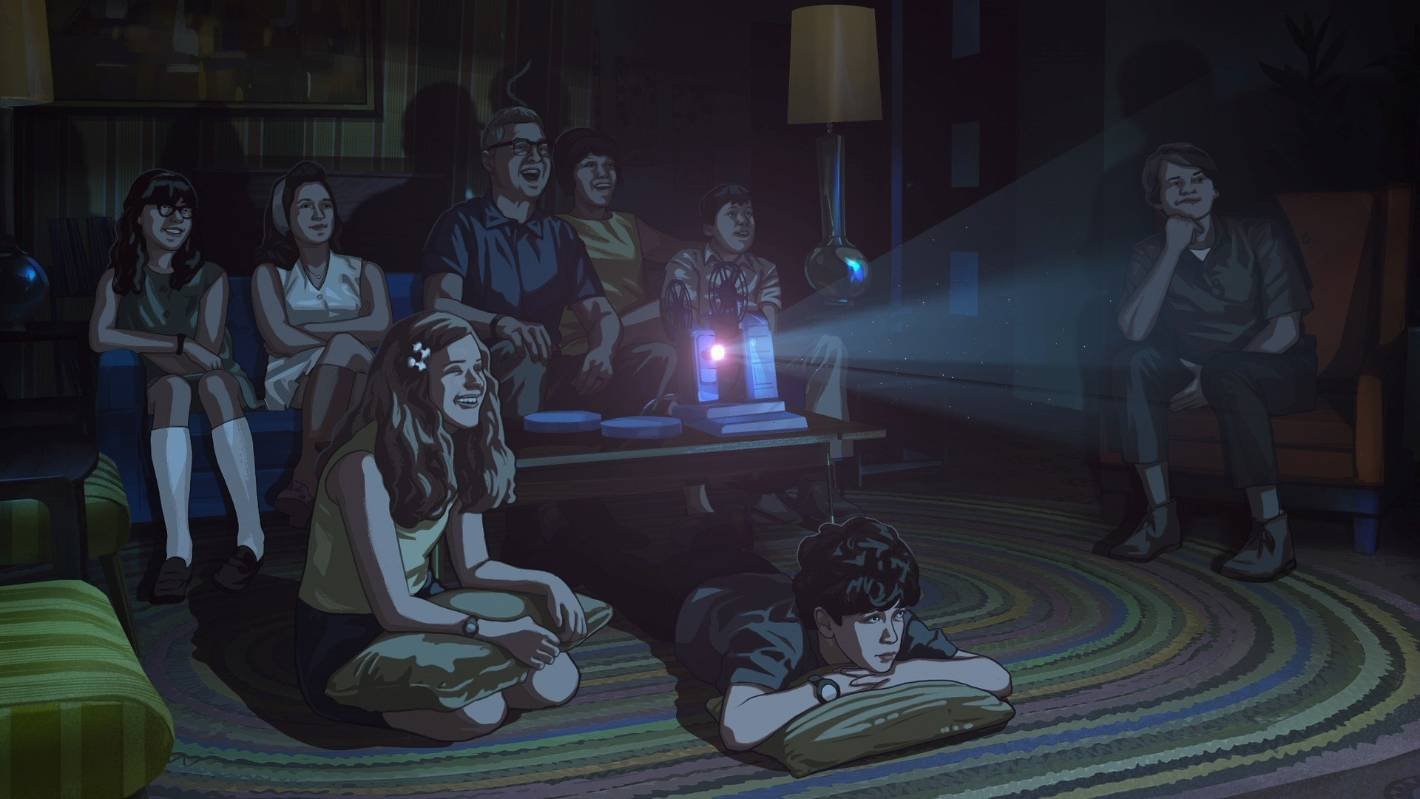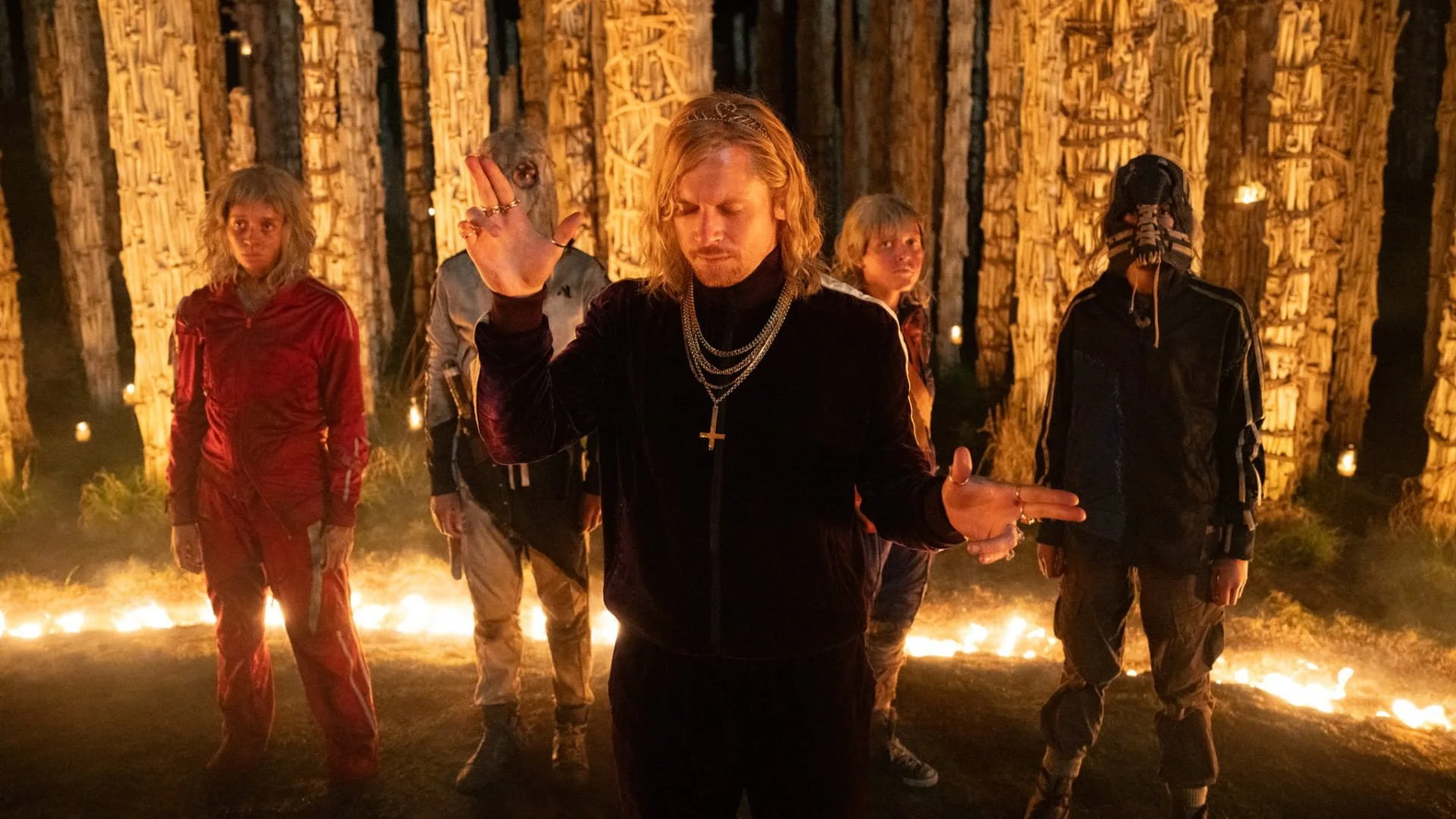Review: Apollo 10 ½: A Space Age Childhood (2022)
As a stylish exercise in nostalgic reflection, it’s easy to vibe with Richard Linklater’s Apollo 10 ½: A Space Age Childhood, which hit Netflix streaming on April 1. The film is semi-autobiographical, borrowing details from Linklater’s own childhood as a boy growing up in the Houston suburbs in the late 1960s just down the road from NASA. It’s more evidence of Linklater’s role as cinema’s preeminent chronicler of life in American suburbia.
Conventionally filmed and then animated through the use of rotoscoping (similar to Linklater’s past films, Waking Life and A Scanner Darkly), Apollo 10 ½ doesn’t have much in the way of narrative conflict, but what it lacks in dramatic tension, it makes up for in realizing specific details of a time and place that’s near-and-dear to its filmmaker’s heart. It’s a film that luxuriates in nostalgic attention to pop songs, TV shows, meals, hobbies, and the lived-in reflections of living in Houston in 1969. It’s less about poignant realization than simply about transporting viewers back to the past and making that past vibrant and alive (largely through its bright, disarming animation style).
In the film, Stanley (Milo Coy) earns a spot on a secret mission to the moon that happens right before the famous Apollo 11 landing. We watch him go through the famous NASA space mission training—spinning in a G-force simulator, riding the vomit comet—and eventually land on the moon, which coincides with the film’s recreation of the Apollo 11 moon landing itself.
Of course, Stanley’s mission is simply a flight of fancy, the kind of daydreaming you’d expect from a boy whose dad works at NASA and who grew up with fighter jets regularly breaking the sound barrier over his home. Narrated by Jack Black as an adult Stanley, Apollo 10 ½ takes the viewer on a tour of his “space age childhood.” Most of the film is simply delivery of exposition: we learn about Stanley’s parents, his five siblings, what he’d watch on TV, what he’d listen to on the record player, what he’d eat for lunch at school and what he’d get up to in the suburban streets after the bell rang at the end of the day. It’s hyper-particular in its pop-culture references, including a killer soundtrack of 1960s hits from Donovan, The 5th Dimension, The Byrds, The Monkees, CCR—the list goes on. It paints a portrait of a childhood and allows us to experience the joys, frustrations, and rhythms of that childhood.
The film has a laid back vibe similar to Licorice Pizza, another film that luxuriates in nostalgic details of its filmmaker’s childhood. But where Paul Thomas Anderson’s film traced a relationship between two individuals that creates a considerable amount of emotional tension, Apollo 10 ½ is more content to just flow from one scene to the next, not forcing any confrontations or obstacles onto its act of reminiscence. Looking back is the point here, and Linklater is happy to keep the focus on all the delights and absurdities of childhood, instead of complicating the film’s rosy view of the past. The result is rather slight, but never less than charming.
At its best, the film captures the optimism of a time and place where the world seemed new and exciting and full of possibility. It’s a film of big skies, open roads, and lively dreams. At its worst, it’s simply a brightly coloured catalogue of period details. Is there more to the film than its nostalgia? Perhaps not, but I can think of a lot worse things to do than spend 98 minutes in an animated Houston in 1969.
7 out of 10
Apollo 10 ½: A Space Age Childhood (2022, USA)
Written and directed by Richard Linklater; starring Milo Coy, Jack Black, Glen Powell, Zachary Levi, Josh Wiggins, Lee Eddy, Bill Wise, Natalie L’Amoreaux, Jessica Brynn Cohen, Sam Chipman, Danielle Guilbot.



This mockumentary starring Matt Johnson and Jay McCarrol is a complex metafiction farce and a loving portrait of friendship and Toronto.